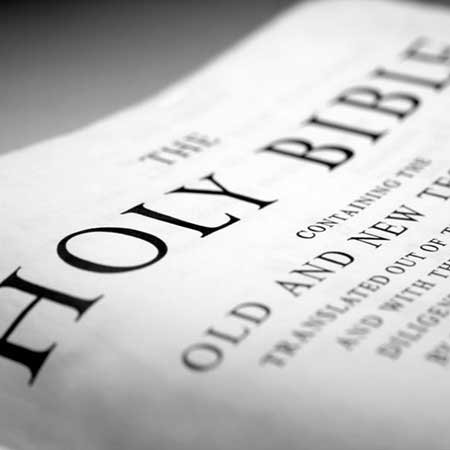General Introduction

 One of the most fascinating, if surprising, discoveries in studying Christian teachings is that this subject, the Kingdom of God, is the central theme of Scripture and yet it has been one of the most neglected doctrines across the centuries.
One of the most fascinating, if surprising, discoveries in studying Christian teachings is that this subject, the Kingdom of God, is the central theme of Scripture and yet it has been one of the most neglected doctrines across the centuries.
In the same way that God revealed himself by progressive revelation in the Old and New Testaments, our understanding of Christian doctrine has also developed progressively. The great doctrines of the Person of Christ, of the Holy Spirit and the Trinity took some centuries to open up. A millennium later the evangelical truths of the authority of God’s Word, justification by faith and the nature of the Christian ministry began to unfold. Thereafter followed divine illumination on the importance of missions, the work of the Spirit in sanctification, the doctrine of the church, pneumatology and, more recently, the restoration of the five-fold-ministries. The doctrine of the Kingdom of God, theologically speaking, only recently come into clear focus. During the last few decades, no doctrine has been so vigorously debated by scholars, and none has produced such a bewildering diversity of explanations.
Prominence of the doctrine
John Bright says ‘…the concept of the Kingdom of God involves, in a real sense, the total message of the Bible. Not only does it loom large in the teachings of Jesus; it is to be found, in one form or another, through the length and breadth of the Bible……. To grasp what is meant by Kingdom of God is to come very close to the heart of the Bible’s gospel of salvation.’
The Old Testament hope
The Biblical idea of the Kingdom of God is deeply rooted in the Old Testament which steadily builds a composite picture of the coming Kingdom of God. The prophets continually look forward to a ‘day’ an era, when men will live in harmony with other men, when peace will prevail and when God’s righteous rule is experienced in the world of mankind.
It was expected to provide a solution to social problems:
Isa 2:3-4 Many peoples will come and say, “Come, let us go up to the mountain of the LORD, to the house of the God of Jacob. He will teach us his ways, so that we may walk in his paths.” The law will go out from Zion, the word of the LORD from Jerusalem. He will judge between the nations and will settle disputes for many peoples. They will beat their swords into ploughshares and their spears into pruning hooks. Nation will not take up sword against nation, nor will they train for war anymore.
It was closely linked with the arrival of the Messiah:
Isaiah 9:6-7 For to us a child is born, to us a son is given, and the government will be on his shoulders. And he will be called Wonderful Counselor, Mighty God, Everlasting Father, Prince of Peace. Of the increase of his government and peace there will be no end. He will reign on David’s throne and over his kingdom, establishing and upholding it with justice and righteousness from that time on and forever. The zeal of the LORD Almighty will accomplish this.
It was connected to the outpouring of the Holy Spirit:
Joel 2:27-32 Then you will know that I am in Israel, that I am the LORD your God, and that there is no other; never again will my people be shamed. ‘And afterward, I will pour out my Spirit on all people. Your sons and daughters will prophesy, your old men will dream dreams, your young men will see visions. Even on my servants, both men and women, I will pour out my Spirit in those days. I will show wonders in the heavens and on the earth, blood and fire and billows of smoke. The sun will be turned to darkness and the moon to blood before the coming of the great and dreadful day of the LORD. And everyone who calls on the name of the LORD will be saved; for on Mount Zion and in Jerusalem there will be deliverance, as the LORD has said, among the survivors whom the LORD calls.
This was the hope of Israel. At the time of Jesus’ birth the entire Jewish nation was looking forward to the return of the Messiah who would introduce a golden era of his Messianic Kingdom. Though they did not understand exactly what it would be like, promises over the centuries were rising towards an explosive moment when the Messiah-King would be manifest.
Those sitting in darkness saw a Great Light (Isa 9:2, Mt 4:16)
The angel Gabriel broke 400 years of prophetic silence with his words to Mary, “But the angel said to her, “Do not be afraid, Mary; you have found favour with God. “You will conceive and give birth to a son, and you are to call him Jesus. He will be great and will be called the Son of the Most High. The Lord God will give him the throne of his father David, and he will reign over Jacob’s descendants forever; his kingdom will never end.” (Luke 1:30-33).
Simeon had a remarkable revelation by the Spirit after Jesus was born but before his presentation at the Temple in Jerusalem, possibly two years later. ‘Now there was a man in Jerusalem called Simeon, who was righteous and devout. He was waiting for the consolation of Israel, and the Holy Spirit was upon him. It had been revealed to him by the Holy Spirit that he would not die before he had seen the Lord’s Christ. (Luke 2:25-26)
Similarly, Anna, a seasoned prophetess, had a divine revelation about the child Jesus when he was presented at the Temple. ‘There was also a prophetess, Anna, the daughter of Phanuel, of the tribe of Asher. She was very old; she had lived with her husband seven years after her marriage, and then was a widow until she was eighty-four. She never left the temple but worshiped night and day, fasting and praying. Coming up to them at that very moment, she gave thanks to God and spoke about the child to all who were looking forward to the redemption of Jerusalem. (Luke 2:36-38)
Even after Christ’s death we read of Joseph of Arimathea, a ‘Council member and a good and righteous man’, waiting for the Kingdom. ‘He came from the Judean town of Arimathea and he was waiting for the kingdom of God.’ (Luke 23:51)
The expressions ‘the consolation of Israel’ and ‘the redemption of Jerusalem’ are indicative of the rise of expectation amongst the Jews at that time.
John the Baptist – the forerunner of Jesus
John was the one chosen to prepare the way of the Lord “Repent for the Kingdom of Heaven is at hand!” – was his main message (Mark 1:14-15, Matt 3:2). He almost equates Jesus and the Kingdom. The time has come for the prophesied kingdom to be revealed.
Jesus confirmed the Baptist’s prophecy:
“After John had been taken into custody, Jesus came back into Galilee preaching the Gospel of God and saying, ‘The time is fulfilled, the Kingdom of God is at hand, repent and believe the Gospel’”. Mk 1:14. This summarises all that Jesus did for the next three years.
Jesus and the Kingdom of God
It is clear that the Kingdom of God is the central theme of His ministry. He came as God’s representative to reveal His Father, to proclaim His purpose and to do His will (Heb 1:1-2, John 14:9, John 1:14, 18). The gospels sum up His ministry by referring to “The Kingdom of God”.
Prior to a long teaching session, Matthew summarises Jesus’ ministry, centring it on the Kingdom.
“And Jesus was going about in all Galilee, teaching in their synagogues, and proclaiming the Gospel of the Kingdom, and healing every kind of disease and every kind of sickness among the people. And all the news about Him went out into all Syria: they brought to Him all that were ill, taken with various disease and pains, demoniacs, epileptics, paralytics, and He healed them”. (Matthew 4:23-34, cf Matthew 9:35 ff)
Later Jesus gives similar instructions to the seventy disciples (Matt 10:1-8, Luke 10:1 ff).
He tells us to pray “Your Kingdom Come” (Matt 6:10)
He commands his disciples to “Seek first the Kingdom of God” (Matt 6:33)
He says “The Kingdom of Heaven suffers violence and violent men take it by force” (Matt 11:12)
He calls teachers of the word “Disciples of the Kingdom of Heaven” (Matt 13:52)
He tells Kingdom parables (Matt 13)
He concludes His ministry by saying “And the Gospel of the Kingdom shall be preached in the whole world for a witness to all the nations, and then the end shall come” (Matt 24:14)
We see the same message in Acts 1:3, 8:12, 20:25, 28:31.
Though specific references lessen in the rest of the New Testament, it is clear that the early ministries saw their efforts in the context of the Kingdom of God (Rom 14:17, 1 Cor 4:20, 6:9, Col 1:30, 1 Thess 2:12, 2 Thess 1:5, James 2:5). The New Testament also looks forward to an ultimate Kingdom expression at some future point (2 Tim 4:1,18, 2 Pet 1:11). There is a present and a future aspect to the Kingdom. Revelation sums up the goal of history in Revelation 11:15.
Undoubtedly, the “The Kingdom of God” is to be central in our thinking. In fact, we have to conclude that the Kingdom of God is the key to understanding Scripture; it is the pivotal point in comprehending Christian doctrine; it clearly defines the work of God and the purpose of the church and it offers an explanation of events in our world, not least of all our personal experiences.






